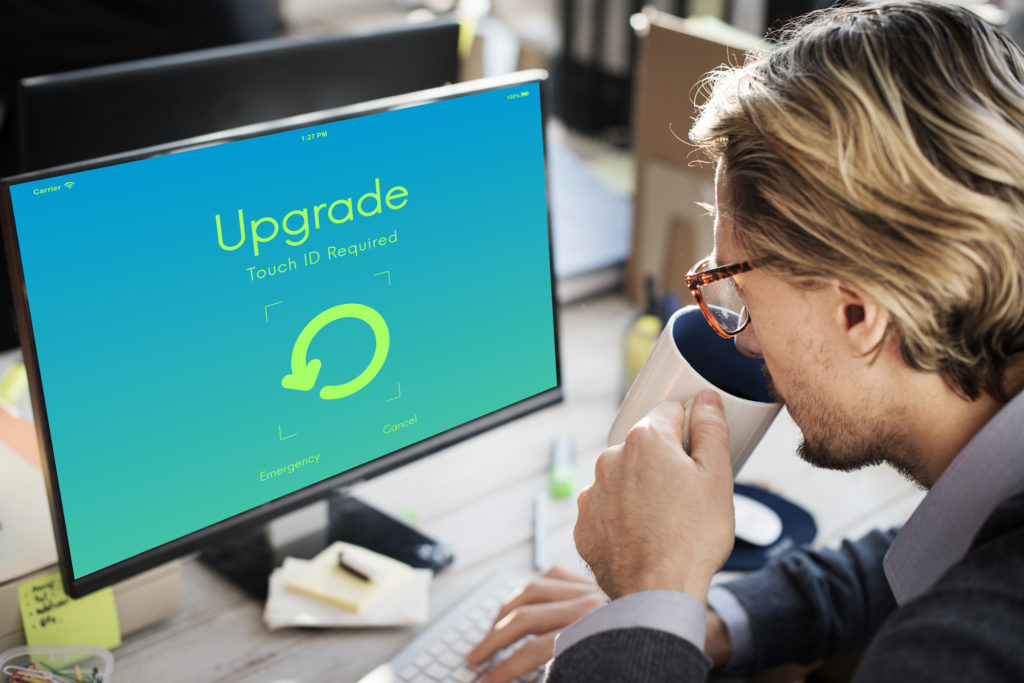
When something gets old, most people get rid of it and buy a new one. Although, unlike your smartphone, computer upgrading is actually an option. The average price of a new computer is over $700.
It’s very possible to avoid having to buy a new computer and just upgrading it to get over 5 years of flawless operation. Even as programs and games take advantage of new technologies, the improvements aren’t drastic. You don’t become a second-class citizen just because the next generation of PC parts come out.
With that said, a slowing computer can be frustrating and we don’t doubt people wanting to just start with a new slate. Upgrading doesn’t have to be reserved for PC enthusiasts, it’s actually quite easy. All you need is a checklist, good instructions, and some patience.
Let’s begin with the most affordable types of upgrades: free tweaks.
Cleaning House
Even if you have the latest and greatest computer technology, it can be turned into a slow-moving turtle after just a few months. The reason isn’t that the parts are getting old or it is faulty. Too many programs fighting for resources can cause ‘gridlock’ on your computer.
The first thing you’ll want to do is locate your Apps and Features rnenu. This is going to give you a list of all the non-essential programs on Windows. Now, looking at this list, go through each one and determine if you need it.
If you don’t know what the program is, just search the name on Google. This may seem tedious, but it’s worth the time to a) get rid of unnecessary clutter and b) get to know what is exactly on your PC.
CCleaner for Deep Cleaning
Those who have computers that are older than a few years may need to go beyond simple program deletion. As time goes on, your computer can become filled with temporary files, broken programs, corrupt files, and duplications. For a more complete cleaning, use programs like CCleaner.
It’s safe, trusted, and free. You just tell it how thorough you want it to clean (it can erase all your cookies, so save your passwords).
Defragmentation
Those with older mechanical hard drives will find an obvious decline in the speed of booting their PC. Opening files programs also becomes a waiting game, too. For those who have modern Solid State Drives, you can skip this tip. SSDs do not need to be defragmented.
Windows has a built-in defragmenting utility. Windows 10 even makes it so that you don’t need to have to manually do it every three months. Typically, when programs and boot speed suffers, it’s going to be due to a fragmented hard drive.
Viruses and Malware
If you’ve cleaned up your PC, defragmented, and still don’t notice much of a difference in speed, it could be a virus. Viruses and malware (very similar, but program-oriented) steal resources from other programs. They’ll constantly run in the background and either collect your information or force pop-ups, or both.
To get rid of viruses, you’ll need to do a virus scan without allowing them to hide from detection. This means doing a virus scan in Windows “Safe Mode”. When you boot in Safe Mode, only the very essentials are started up. This means the virus isn’t invited to the party and you can scan and eliminate them.
We recommend using Malwarebytes Anti-Malware for cleaning and Bitdefender for active protection. You don’t need expensive Anti-virus protection, just practice smart and safe web browsing habits.
Are You Running Windows 10?
If you never upgraded your computer to Windows 10, you’re missing out on a lot of potential. Windows 10 is the fastest, lightest, and safest OS. If you have Windows 7 or 8 installed, don’t hesitate to upgrade. Your computer can run Windows 10 if it can run those two.
If you have tried and failed to install Windows 10, then it might be time for some new hardware.
New to Computer Upgrading?
After doing all the maintenance and cleaning of your computer’s software, is it still slow? Well, it might be time for a hardware upgrade. Learning how to upgrade a computer is easy. As long as you can use a screwdriver and follow directions, you’ll be successful.
You Need an SSD
Having a state-of-the-art computer with a standard hard disk drive is like driving a Mercedes with access to only one gear. If you upgrade your computer with an SSD, you’ll go from 3-minute boots to 15-second boots. Instead of waiting up to a minute for large programs to launch, they will take 5 seconds.
You don’t even need to get rid of your old hard drive, either. It can always be used for a back-up drive. This is great for making copies of important documents and photographs. Consider investing in a faster hard drive, if you need more storage, with faster access speeds. Read these internal hard drive reviews for some ideas.
Adding More RAM
Let us preface this tip with a word of caution that RAM is no longer “dirt cheap” to upgrade. The demand for RAM/memory chips is much higher than the supply right now. With that said, RAM should definitely be your number two priority for getting the best value for your money.
Even if you have to spend $80 for 8 GB of RAM, the difference will be like night and day. This will allow you to browse dozens of websites without slowing down, play more games, multi-task, all without closing anything down.
You should aim for at least 8 GB of RAM, 16 GB for gamers.
Upgrading the Processor
A faster processor certainly translates into a faster computer, but how does it fit in on value? This is going to depend primarily on your computer’s chipset. The motherboard is what houses the processor. You can’t upgrade to the newest processor unless your motherboard supports it.
The best way to find out what your motherboard is compatible with is to download a program like CPU-Z to get a free reading. If someone else built your computer, then you could ask them about upgrading.
The gains from upgrading a processor are usually pretty small, so save this consideration for last.
The Graphics Card
Are you a gamer or want to get into gaming on a PC? Well, the graphics card is going to immediately translate into more bells, whistles, and smoother gameplay. This is especially true for those who have their graphics card integrated into the motherboard or CPU.
While integrated graphics have come a long way, a discrete graphics card is required for a great gaming PC. This upgrade is less dependent on the type of motherboard you have, as long as your PC isn’t a decade-old relic.
Some great budget graphics cards are the Nvidia GTX 1060 and the AMD RX 530. These will play the latest games on fairly high settings. The graphics quality will compete with the latest consoles without a problem.
New Monitor = Better Performance?
We want to round out his computer upgrading list with a sort of a compromise for gamers. If your PC isn’t the best, but not necessarily the worst on performance, then hold on. You may not need to drop another thousand dollars on a new gaming rig.
What if I told you that you can experience smoother gameplay without smooth framerates? Well, thanks to gaming monitors equipped with FreeSync or G-Sync technology, your monitor can do it. Struggling PCs used to have to settle for hiccups and laggy controls, but not anymore.
A monitor that handles the syncing of refresh rates takes the pressure off an older or weaker graphics card. These monitors are much cheaper and become a realistic solution to slower gaming computers.
Your PC Needs to Breathe
If you do all this upgrading, but your computer runs hot, you could be wasting money. A PC that constantly runs hot makes more errors and runs a lot slower. Using a program like SpeedFan can tell you if your PC is running hot, but so can your fans. Loud fans either mean poor airflow or improper settings.
Dust is a really underestimated killer of PC performance. You should invest in a pack of canned air and practice quarterly cleanings. Canned air is one of those universal products that everyone should have. A layer of dust traps heat on all your components, which keeps them hotter, longer. This can mean a difference in 5-10 degrees Celcius, on average.
More Advice and Tech Tips
If you follow these tips on computer upgrading, you will see results. Learning how to upgrade a computer is also a valuable skill. If you get comfortable enough, you can start up your own little family business.
Uncle Carl’s computer is running slow and needs your help? Fix it up and make a name for yourself. Once other family and friends start having computer troubles, you’ll be their “tech person”. While computers are constantly getting better and faster, they will always need a human to keep them running smoothly.
For more advice about computers and technology, visit our blog. There are always opportunities to extend the lives of our electronic devices. Even if it does seem easier to just throw it away and buy a new one.

